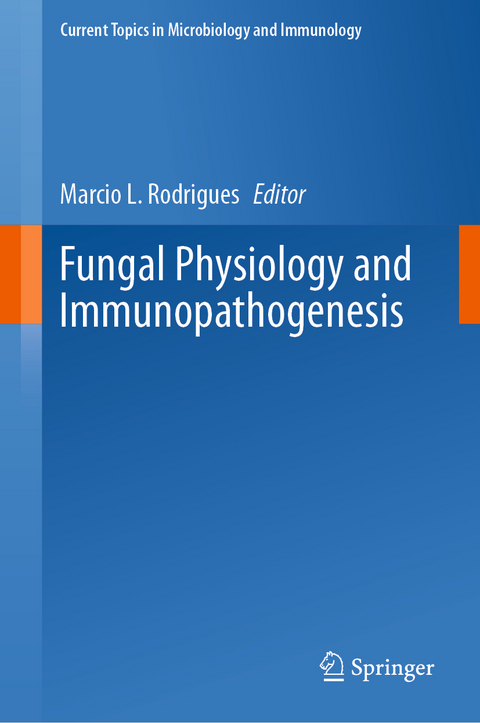
Fungal Physiology and Immunopathogenesis
Springer International Publishing (Verlag)
978-3-030-30236-8 (ISBN)
This volume offers an overview of the various aspects involved in the ability of fungi to damage host cells, and discusses cutting-edge approaches to the study of fungal pathogenesis. The first chapter illustrate the key roles of glycans and pigments, the most abundant surface components in fungal cells, in their interactions with host cells. The connections between cellular physiology and fungal pathogenesis are then discussed in the following chapters. Physiology-related processes affecting pathogenesis include fungal secretion, morphological transitions, and response to light.
In turn, the book illustrates mechanisms of damage to host cells using the Histoplasma capsulatum model of infection, and reviews the use of transcriptomic approaches to understand the mechanisms of interaction between fungal cells and host tissues. After a discussion of the immunological mechanisms underlying host susceptibility to fungal infections, the book's closing contribution reviews the mechanisms of interaction between fungi and other microbes, and the impact of this association on fungal pathogenesis. Given its scope, the book will appeal to scientists in the fields of mycology, microbiology, infectious diseases, biology and medicine.
Marcio Rodrigues is a senior investigator in the Carlos Chagas Institute (Oswaldo Cruz Foundation, Fiocruz; Brazil). His laboratory is mainly interested in the mechanisms by which fungal cells export biologically active molecules to the extracellular space. In this context, the laboratory has been investigating the role of extracellular vesicles in fungal physiology and pathogenesis for the last decade, mainly using the Cryptococcus model of secretion. The group is especially interested in how lipids and glycans participate in secretory processes that are essential for fungi, aiming to connect basic cell biology mechanisms with the identification of cellular pathways that could be targeted by novel antifungal agents.
Candida morphology and pathogenesis.- Fungal biofilms.- Immunoactive fungal vesicles.- Candida parapsilosis pathogenesis.- Fungal circadian clocks and pathogenesis.- Cryptococcal pathogenesis.- Nucleic acid export in fungi.- Immunity to fungal infections.- Fungal systems biology.
| Erscheinungsdatum | 21.09.2019 |
|---|---|
| Reihe/Serie | Current Topics in Microbiology and Immunology |
| Zusatzinfo | VIII, 301 p. 23 illus., 19 illus. in color. |
| Verlagsort | Cham |
| Sprache | englisch |
| Maße | 155 x 235 mm |
| Gewicht | 589 g |
| Themenwelt | Medizin / Pharmazie ► Medizinische Fachgebiete ► Mikrobiologie / Infektologie / Reisemedizin |
| Medizin / Pharmazie ► Medizinische Fachgebiete ► Pharmakologie / Pharmakotherapie | |
| Studium ► Querschnittsbereiche ► Infektiologie / Immunologie | |
| Schlagworte | candida morphology • candida parapsilosis pathogenesis • candida pathogenesis • cryptococcal pathogenesis • fungal biofilms • Fungal Infections • fungal systems biology • Fungal virulence |
| ISBN-10 | 3-030-30236-9 / 3030302369 |
| ISBN-13 | 978-3-030-30236-8 / 9783030302368 |
| Zustand | Neuware |
| Haben Sie eine Frage zum Produkt? |
aus dem Bereich


